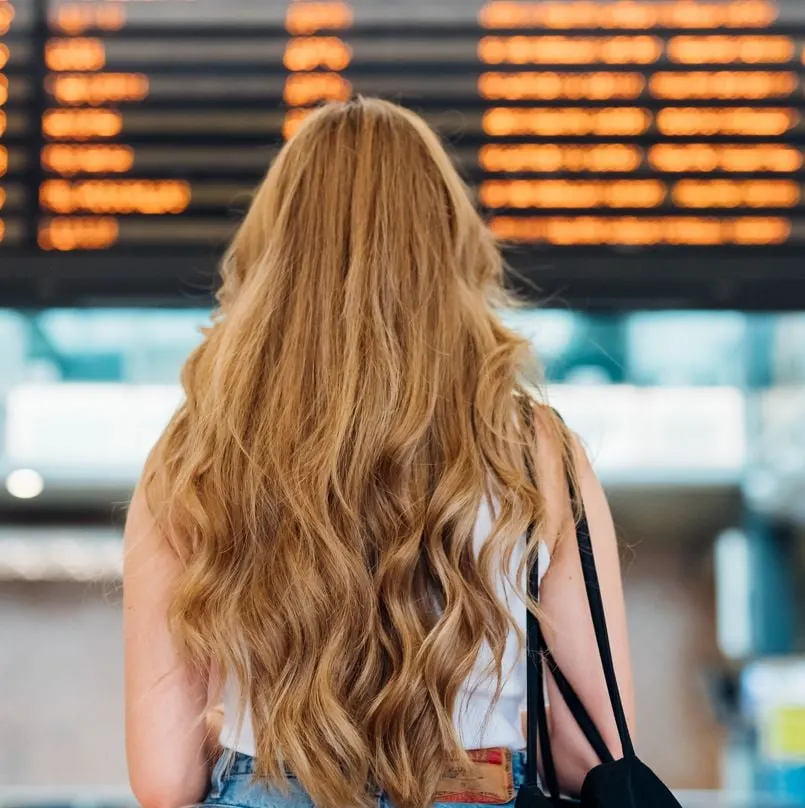With a record-breaking summer ahead for U.S. airports, many travelers are searching for ways to avoid interruptions to their itinerary.
No one can control severe weather, overcrowded airports, or airlines’ self-interested overbooking practices. So how can travelers set themselves up for smooth air travel?

Here are three ways to avoid and prepare for flight disruptions on your next trip:
1. Disruption-Proof Your Route
It all starts in the booking process.
First, avoid problem airports. Check up-to-date news on delay and cancellation rates for your planned airport and airline before purchasing a flight (avoid the top three offenders this month).
Next, eliminate unnecessary stopovers. Delays get upgraded from an annoyance to a certified disaster when they become missed connections.
If a connection can’t be avoided, opt for a longer layover that could insulate you from delays or rebookings in the first leg. Experts recommend at least a two-hour stopover for domestic connections in these peak conditions.
Better to kill an extra hour in a top-ranking U.S. airport for stopovers with some food and wine or hit the lounges than to risk a missed connection in this summer’s disruption-heavy flying environment.

Travelers should consider flying with airlines that have strong protection and compensation policies for delayed and rebooked passengers.
The U.S. Department of Transportation provides a convenient dashboard with each airline’s up-to-date delay and cancellation customer service policies summarized together in one table.
Passengers can also review airlines’ customer service wait times and quality, then choose a carrier that will provide the best experience in case of possible disruptions.
Top 5 Travel Insurance Plans For 2023 Starting At $10 Per Week
Easily Earn Points For Free Travel

2. Strategically Time Passport Applications and Renewals
Travelers needing to get or renew a passport this summer should keep an eye on the clock. The U.S. Department of State recently announced longer processing times for passports.
There was an “unprecedented” 30-40% increase in passport demand earlier this year, according to Secretary of State Anthony Blinken. To make matters worse, there remains a backlog from last year’s record-breaking winter, which reached up to 500,000 applications per week at its peak.
Expedited processing time has been delayed to 7-9 weeks, and standard processing to 10-13 weeks. On top of that, the passport needs 2 weeks to transit to the agency, both before and after processing.

Travelers can expect 3-4 months altogether to receive their passports this summer. This extended wait will likely only get worse.
While the best option would be to apply four months in advance, there is an option for U.S. travelers with international trips coming up sooner this summer.
Travelers with less than 3-4 months until a booked international trip should actually wait until 14 days before their flight, when they become eligible for an expedited appointment at the agency. The process of securing this appointment is not easy, however, so travelers should keep that in mind.

3. Prepare For Delays
After taking all precautionary measures in booking, all that’s left to do is prepare for the unpreventable.
Delayed and lost baggage are common during peak summer travel season. With missed connections, baggage may even end up in the wrong city.
Travelers can protect themselves from a lost luggage disaster by either packing carry-on only or keeping a few days’ essentials in their carry-on.
Many travel credit cards provide insurance for trip delays and lost or delayed baggage for trips booked with their card (e.g. Chase Sapphire, Southwest, World of Hyatt, United). These reimburse the personal and business items travelers need to buy to temporarily replace the contents of their delayed or lost luggage, supplementing airline compensation policies.

Finally, prepare for lines. This summer is not the time for travelers to try to beat their security speed records.
Experts recommend arriving at the airport at least 3 hours early for international flights and 2 hours early for domestic trips to avoid missing a flight.
Passengers should consider arriving more than 3 hours early at airports with the longest waits this year:
- Chicago O’Hare International Airport (ORD)
- Los Angeles International Airport (LAX)
- John F. Kennedy International Airport (JFK)
- George Bush Intercontinental Airport (IAH)
- Dallas/Fort Worth International Airport (DFW)
- Miami International Airport (MIA)
- San Francisco International Airport (SFO)
The Travel Off Path Advantage: Your Travel Toolkit
U.S. Travel Advisory Checker
An easy tool to check all the latest travel advisories from the U.S. State Department.
Entry Requirements Checker
An easy tool to check all the entry requirements for your destination.
The Upgrade Newsletter
Unlock travel tips, hot destination insights, and exclusive flight deals.
Join Our Community
With over 25,000 members on Facebook!
Subscribe To Our Latest Posts
Enter your email address to subscribe to Travel Off Path's latest breaking travel news, straight to your inbox.
